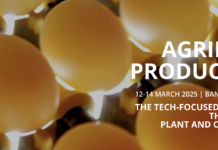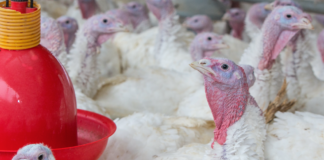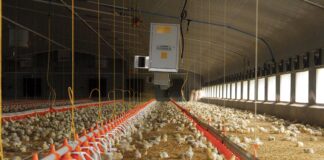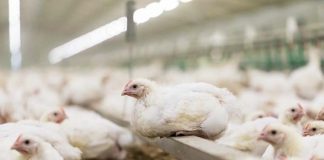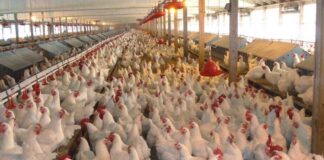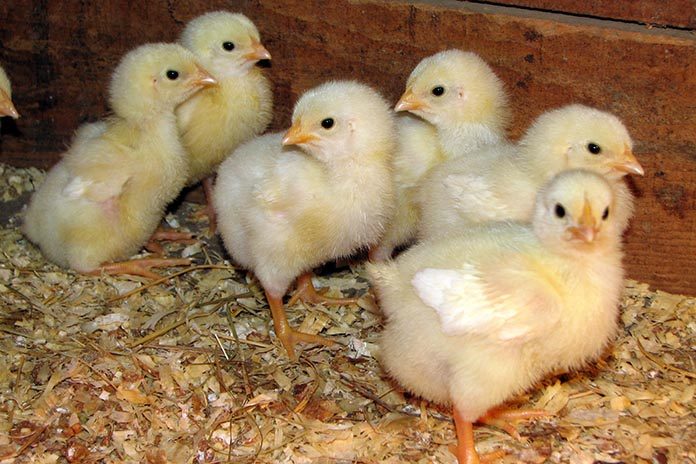
Synergistic use of different feed additives may support producers’ antibiotic reduction programmes.
Reducing antibiotic use in poultry production is an urgent objective shared by stakeholders around the world. Global health authorities’ warnings about the human health threat posed by antimicrobial resistance have led many governments to impose legislative bans on the use of antibiotics as growth promoters in livestock production. Additionally, retailers and consumers continue to call for more transparency in how their food is produced. Yet at the same time, producers are challenged to meet growing demand for protein while maintaining profitable operations.
During the Poultry Science Association (PSA) Annual Meeting, 23-26 July, in San Antonio, Texas, USA, several Trouw Nutrition studies were presented, focusing on precision nutrition solutions in broilers’ diet formulation and evaluating the effects of copper and zinc hydroxychloride on broilers’ growth performance compared to inorganic sources.
Two of the studies, presented by Trouw Nutrition researchers, shared how an integrated approach to poultry nutrition using synergistic blends of feed additives applied in drinking water and feed may support producers’ antibiotic reduction efforts. The key findings from these two Trouw Nutrition research presentations delivered during the PSA Annual Meeting follow:
Applying organic acids in drinking water may support growth performance while reducing FCR, improving footpad quality and lowering mortality rates compared to an in-feed antibiotic
Greg Page, Trouw Nutrition Agresearch Canada, presented findings from a validation study done at Colorado Quality Research, USA, comparing growth performance among broilers receiving a blend of free and buffered organic acids to birds receiving in-feed AGPs to coccidiosis-vaccinated birds.
At the trial’s conclusion, the birds receiving organic acids applied in drinking water had body weights (2.97 kg) similar to birds receiving in-feed antimicrobial growth promotors (AGPs) and numerically higher body weights compared to birds in the control group (2.92 kg). In addition, birds receiving high levels of organic acids in drinking water had significantly lower cumulative feed conversion ratios (FCR) than birds in the control group and in-feed antibiotic group. Footpad quality was significantly improved in birds receiving organic acids in their drinking water compared to the birds receiving AGPs and the control group. Additionally, birds given organic acid-supplemented water had numerically lower mortality rates (4.4% on average) compared to birds receiving AGPs (7.72%).
Including copper hydroxychloride and synergistic organic acids in different nutrient density diets may support performance and improved FCR without additional cost
Lane Pineda, Trouw Nutrition R&D, presented trial findings from a validation study, comparing the health and performance effects of a combination of copper hydroxychloride and a synergistic blend of gut health improving feed additives in feed and in water to in-feed AGPs added in a standard and sub-optimal diet.
Results indicated that regardless of a diet’s nutrient density, broilers receiving the combination of copper hydroxychloride and a synergistic blend of gut health improving feed additives by feed and water showed health and performance benefits comparable to broilers receiving in-feed AGPs. Feed intake was comparable across all groups, while average daily gain was numerically increased with the addition of a synergistic blend of gut health improving feed additives resulting in parallel body weight gain to that of broilers receiving in-feed AGPs. The addition of an additive to the sub-optimal diet may improve nutrient digestibility and allow broilers to grow at a similar rate as broilers fed with the standard diet. The FCR was lower for broilers fed the standard diets supplemented with feed additives compared to other treatments. From an economic perspective, the cost per kg gain was lowest for birds receiving the standard diet supplemented with synergistic blends of feed additives or AGPs compared to birds receiving the modified diet with or without the feed additive.
Global validation effort supports local approaches to antibiotic-free production
Trouw Nutrition conducts validation trials around the globe to validate the efficacy of their products in varying production environments, responding to differences, for example, in local diet compositions, climate conditions and management systems. Through relationships with leading universities, key opinion leaders and a network of research centres spanning five continents, researchers publish their findings in scientific journals and apply the insights locally to help producers and integrators tailor an approach unique to their antibiotic reduction programme goals. More than 60 validation studies will be conducted in 2018.




